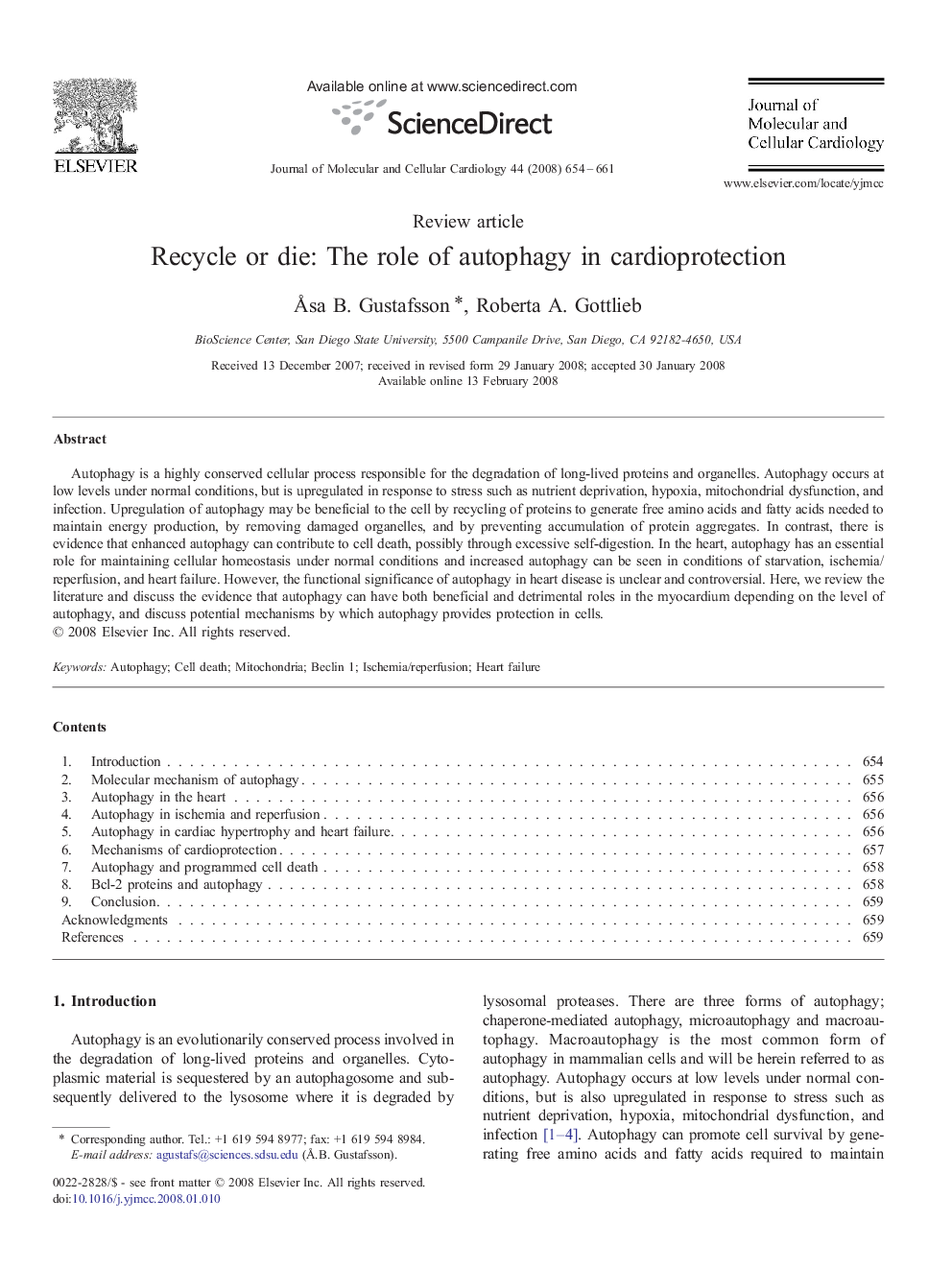| کد مقاله | کد نشریه | سال انتشار | مقاله انگلیسی | نسخه تمام متن |
|---|---|---|---|---|
| 2191265 | 1097857 | 2008 | 8 صفحه PDF | دانلود رایگان |

Autophagy is a highly conserved cellular process responsible for the degradation of long-lived proteins and organelles. Autophagy occurs at low levels under normal conditions, but is upregulated in response to stress such as nutrient deprivation, hypoxia, mitochondrial dysfunction, and infection. Upregulation of autophagy may be beneficial to the cell by recycling of proteins to generate free amino acids and fatty acids needed to maintain energy production, by removing damaged organelles, and by preventing accumulation of protein aggregates. In contrast, there is evidence that enhanced autophagy can contribute to cell death, possibly through excessive self-digestion. In the heart, autophagy has an essential role for maintaining cellular homeostasis under normal conditions and increased autophagy can be seen in conditions of starvation, ischemia/reperfusion, and heart failure. However, the functional significance of autophagy in heart disease is unclear and controversial. Here, we review the literature and discuss the evidence that autophagy can have both beneficial and detrimental roles in the myocardium depending on the level of autophagy, and discuss potential mechanisms by which autophagy provides protection in cells.
Journal: Journal of Molecular and Cellular Cardiology - Volume 44, Issue 4, April 2008, Pages 654–661